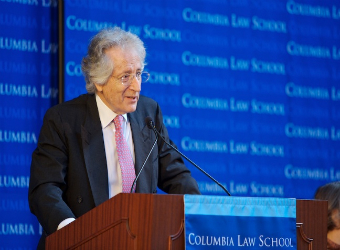The Organization for the Prohibition of Chemical Weapons (OPCW), the enforcement arm of the Chemical Weapons Convention, will bear the heavy lifting in verifying the destruction of Syria’s chemical weapons stockpile and production capability.
The OPCW has been working relentlessly since 1997, when the treaty was entered into force, to reach universal membership. Only a handful of countries have yet to join; Syria, Egypt and North Korea have been among the most reluctant. With Syria’s decision to give up and destroy its chemical weapons stockpile, now is the moment to appeal to Egypt to accede to the treaty.
Israel was one of the early signers, indicating its accord with the treaty’s purposes and principles — no production, possession, transfer or use of chemical weapons — but it has been reluctant to deposit its ratifying document without being joined by its neighbors Egypt and Syria.
The United States and Russia can seize this moment to reaffirm the moral precept on which they have partnered by urging the rest of the U.N. Security Council and all U.N. member states to call upon Egypt and Israel to promptly and together ratify the Chemical Weapons Convention.
About the Writer
Mr. Eric M. Javits was U.S. ambassador to the Organization for the Prohibition of Chemical Weapons from 2003 to 2009. Mr. Ekeus is chairman of the Stockholm International Peace Research Institute and, from 1991 to 1997, was the executive chairman of the U.N. Commission on Iraq.
Source: The Washington Post


